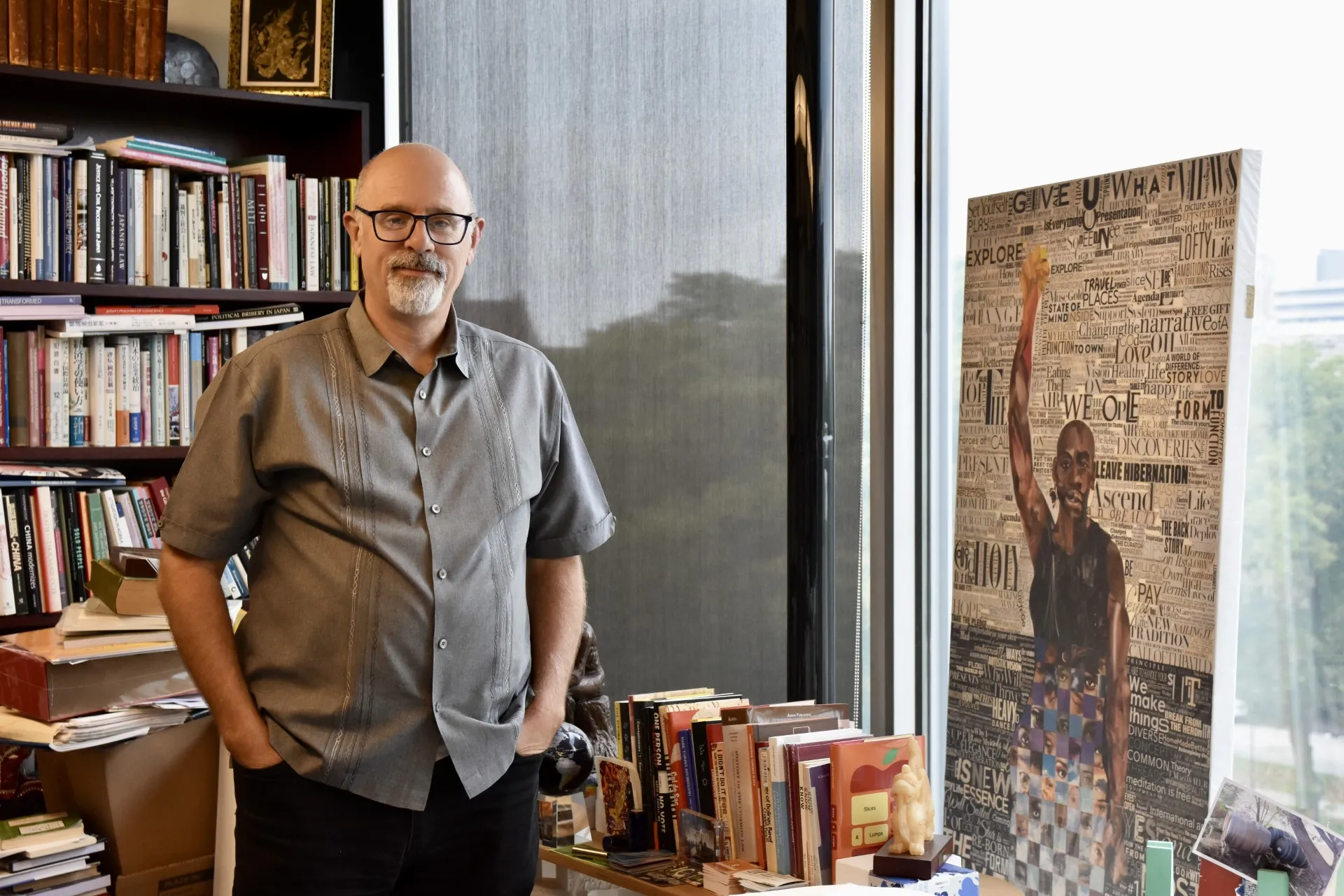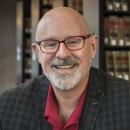Tom Ginsburg Reflects on New Forum, Law School’s Role in Advancing Free Inquiry and Expression

Editor’s note: View University News Office coverage of the event.
Tom Ginsburg is at the helm of an exciting new University initiative launching this week—the UChicago Forum for Free Inquiry and Expression. The Forum will officially kick off Oct. 5-6 with a series of talks among leading thinkers—including two other Law School professors—who will discuss present-day challenges around free speech.
Ginsburg, the Forum’s Faculty Director and the Leo Spitz Distinguished Service Professor of International Law at the Law School, is passionate about his new role. In a recent discussion, he reflected on how his work at the Law School intersects with the mission of the Forum, how the Law School has influenced the Forum, and what he hopes this new venture will inspire at the University and beyond.
Tell us a little bit about your work with the Forum and why it’s important to you.
From a Law School perspective, it might seem unusual to have someone involved in this topic who is not a First Amendment scholar, but I do work in constitutional democracy around the world—it’s something I’ve been working on my entire career—and in that capacity, I’ve seen the critical role of free expression and academic institutions in maintaining constitutional democracy. So, my work with the Forum fits into my personal and professional commitments in support of democracy. I see it as a logical extension. I’m passionate about it because I think to some degree our democracy depends on it.
One of the things we’re observing now in this era of democratic backsliding is how important truth-telling institutions are in society—things like the media, government agencies that produce data, and of course universities—and how vulnerable they are to attacks. That’s what’s really motivated me to start caring about the issue. As articulated in a book I wrote in 2018 with my colleague Aziz Huq, we as a country are vulnerable to many of the same forces that we observe around the world. This Forum is part of an effort to address that.
What do you hope to achieve this upcoming year?
What we would define as success is if students come away from here feeling like they’ve learned some skills in how to express themselves… if they’re able to debate respectfully across difference and maybe even change their mind on a few things. That’s critical for students. We hope the Forum models debate across difference, and we hope it stimulates deeper conversations. Ultimately, it would be nice if we can help contribute to the many other schools who are concerned about this issue and collectively stand up for the autonomy of the academic enterprise.
How were the topics chosen for the upcoming launch?
We wanted to highlight University of Chicago faculty and topics we’re working on. Genevieve [Lakier] is at the cutting edge of thinking about social media and how the issues tied to it affect society and law. We wanted to look at the role of free expression in the art world. I wish we had done one on science, but we ran out of time; there’s a lot of free expression in the area of science. We didn’t have a special focus on law, but that will probably come up a little bit in the illiberalism panel.
The logic we used went like this: we start the meeting with the problems and look at them in various contexts. All of that eventually ends up in a panel led by Geof Stone with the many other institutions that are working in and around the university space, like the ACLU and the FIRE.org. These are organizations that keep trying to influence universities on free expression. So, we hope the topics we chose will point toward solutions.
There are two Law School professors on the panel of experts. Is that a coincidence or part of a plan?
It came about organically to be honest. Geof Stone obviously has been a leader on this issue for decades. So, we knew we needed to have Geof involved. And Genevieve has been one of the leading thinkers in the country on questions of free expression and social media. We also have people from other parts of the University… Cathy Cohen, who will be part of the president’s keynote conversation, and Nick Feamster, who’s a computer scientist. The point was for this to be an interdisciplinary effort.
How do you see the Forum's mission and ideas connecting to the Law School's?
The Forum’s mission is threefold: understanding, practicing, and advancing free expression. Understanding is connected to traditional academic work, of the kind Genevieve Lakier, Geof Stone, Aziz Huq and many others have been doing, so trying to understand the issues in society around free expression.
Practicing means extending beyond the Law School some of the activities we’ve developed here that have proven so successful. I’m thinking of the Nussbaum Roundtables where we have two faculty members speak from different perspectives on critical issues with a group of diverse students. I’m thinking of the orientation exercises we’ve had for a few years to introduce students to the Chicago Principles and the Kalven report and other university statements.
And then advancing is more programmatic, where we’d like to contribute to the society more broadly and to have engaged and impactful work that pushes back to some degree on the forces of repression—and that might connect to some of the clinical work being done in the Law School. The Global Human Rights Clinic for example.
To some degree, it’s the Law School that has influenced the Forum in many ways because [Law School Dean] Tom Miles has been a strong leader on this topic. I’ve been involved in creating the Nussbaum Roundtables program and I’ve served as one of the orientation leaders introducing students to free expression norms. We also have another Law School professor, Daniel Abebe, on the Forum’s advisory board. I don’t speak for the administration, but I think I speak for my colleagues in saying that these efforts have helped to contribute to a better environment for free expression. There’s much more to do even in the Law School, but partly what we’re doing in the Forum is extending those initiatives throughout the rest of the University, and maybe ultimately to be emulated by other universities.
What's your long-term vision for the Forum?
The vision really is to have a physical space in which we can host events… to be a place where students can come on a daily basis and hang out and get coffee and debate and practice their skills. We’d have structured activities, but we’d also want to empower students to come up with their own. I think it would be wonderful if we could become an incubation center for social start-ups and ideas around this topic.
Another vision is to create resources on free expression that would be useful to other institutions… to be a model for free expression and dialogue across difference. I hope that wrestling with the tough issues around free expression—because they are tough—and being an intellectual leader in that space will eventually rebound to the benefit of the University as a whole. I think as the University of Chicago, it’s important for us to do this work and to get it right.
